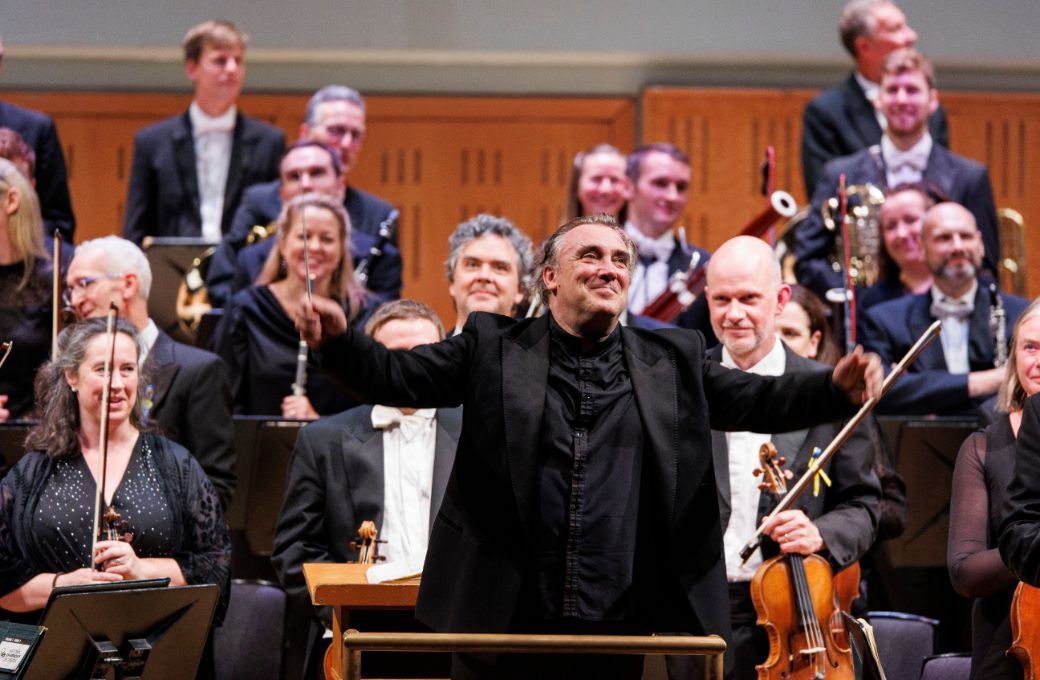It’s a delicate balance between commercial interests and artistic ones. Piano concertos feature regularly on concert programmes. Double bass concertos do not. Perhaps it was this combination of a double bass concerto and a contemporary composer that resulted in a smaller audience for Friday's concert. And while Gerald Barry’s work may not be to everyone’s taste, it was bookeneded by two firecrackers from the Russian repertoire, Glinka’s overture to Ruslan and Lyudmila and Stravinsky’s Firebird.

Glinka’s overture was a vibrant affair. Its opening salvo is the theme tune to the radio comedy Cabin Pressure and Jaime Martín and the National Symphony Orchestra launched into it with gusto, the spirited strings bristling with joie de vivre. The middle section was equally gripping, its vivid orchestration deftly managed by Martín. Blaring brass and thunderous percussion brought this overture to an exciting close.
Double bass concertos bring their fascination: the instrument's Brobdingnagian size, its different bowing technique and the delight in hearing those profoundly low notes. Irish composer Gerald Barry was commissioned by the Berliner Philharmoniker to write this concerto in 2022 for Matthew McDonald, its Principal Double Bass. It is based on Barry’s opera on Fassbinder's play The Bitter Tears of Petra von Kant. As Barry explains “the scene in question is where Petra meets Karin. The solo double bass is Petra and Karin combined.”
It opens with frenetic grumblings on the strings followed by silence, broken by horn interjections. McDonald impressively scaled the heights of his bass before dropping back to pedestrian meanderings in the lower registers. According to Barry, there follows a jittery conversation and the music reflects this as it moves in fits and starts. There are stops every few bars and the odd violent interruption from the brass. While the music is not too atonal it is hard to warm to it on a first listening. There was a memorable moment when McDonald climbed the octave passages higher and higher, louder and louder until he reached the very top of his fingerboard. The subsequent diminished 7th arpeggios over multiple octaves, repeated many times and passed around groups of instruments, was arresting. The concerto ends with McDonald whistling nonchalantly, though to what purpose?
Martín was much more in his element in Stravinsky's Firebird ballet and it showed both in his imaginative conception of the work and the NSO’s response. Sinister cellos and basses created a miasma of unease at the start as Martín conjured up the magical enchanted garden of the evil Kastchei. I was impressed by the shimmers of sound that the violins breathed in hushed voice, and the way Martín elicited suggestive crescendos and decrescendos. The seductive melody on the strings needed a more velvety tone, but I noticed that there are lots of new faces in the orchestra tonight and so it will be up to Martín to mould that sound over the coming season.
The Infernal Dance was utterly compelling with its scintillating taut rhythms and terrifying fortissimo interjections, while pizzicatos throbbed with an evil pulse before Martín whipped the orchestra into a frenzy as it reached its crazed climax. The solemn bassoon melody in the following Berceuse was plaintive and otherworldly while the triumphant brass in the Finale was truly hair-raising.


